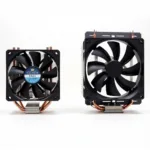Blackpink, the renowned South Korean girl group, has captured the hearts of millions worldwide, garnering an extensive and passionate fanbase known as Blinks. However, alongside this immense support, the group has also faced a significant number of anti-fans, often referred to as “antis.” This article aims to delve into the world of Blackpink’s anti-fans, exploring their motivations, behavior, and the impact they have on the group and their fanbase.
The Rise of Anti-Fans: Understanding the Phenomenon
Anti-fandom is a complex phenomenon that extends beyond Blackpink and exists in various industries, particularly in the realm of popular culture and entertainment. The emergence of anti-fans can be attributed to a confluence of factors, including:
- Jealousy and Envy: Some anti-fans may feel envious of the success and popularity attained by Blackpink, fueled by their own feelings of inadequacy or frustration with their own lives.
- Disagreements with the Group’s Music or Image: Artistic preferences can vary widely, and some individuals might dislike Blackpink’s musical style, their fashion choices, or their overall image, leading them to express their disapproval through negativity.
- Social Media and Online Platforms: The rise of social media and online forums has provided a platform for anti-fans to congregate, amplify their voices, and spread negativity, often engaging in cyberbullying and hate speech.
- Idol Culture: The South Korean idol culture, with its emphasis on perfection, image, and constant scrutiny, can create a breeding ground for anti-fans, who often feel justified in criticizing or attacking idols based on perceived flaws or inconsistencies.
Analyzing Blackpink’s Anti-Fans: Motivations and Behavior
Blackpink’s anti-fans exhibit a diverse range of behaviors and motivations, with some primarily engaged in online criticism while others engage in more aggressive and harmful actions.
Common Anti-Fan Motives:
- Disparagement of Talent and Abilities: Some anti-fans may belittle Blackpink’s musical abilities, dancing skills, and overall talent, often resorting to insults and unfounded claims.
- Spread of Rumors and False Information: Anti-fans may deliberately spread rumors and misinformation about the group, aiming to damage their reputation and undermine their credibility.
- Cyberbullying and Harassment: Online platforms are often used for cyberbullying and harassment, with anti-fans targeting Blackpink members with offensive comments, threats, and personal attacks.
- Disruption of Events and Performances: In some instances, anti-fans have attempted to disrupt Blackpink’s concerts and other events, demonstrating their desire to undermine the group’s success.
Examples of Anti-Fan Behavior:
- Negative Comments on Social Media: Anti-fans frequently leave hateful comments on Blackpink’s social media accounts, music videos, and other online platforms.
- Spamming and Trolling: They may engage in spamming, creating fake accounts, and spreading disinformation to disrupt online discussions and forums dedicated to Blackpink.
- Creating Fake News and Articles: Anti-fans may fabricate false stories and articles about the group, aiming to tarnish their image and spread negativity.
- Creating “Blackpink Anti-Fan Groups”: Some anti-fans have even formed dedicated groups online, where they share their negative sentiments and coordinate their actions against the group.
The Impact of Anti-Fans: Effects on Blackpink and Blinks
The presence of anti-fans can significantly impact Blackpink and their fanbase, creating challenges and difficulties for the group and their supporters.
Impact on Blackpink:
- Mental and Emotional Well-being: Anti-fan behavior can take a toll on the mental and emotional well-being of Blackpink members, leading to stress, anxiety, and depression.
- Reputational Damage: The spread of false information and negativity can damage Blackpink’s reputation, potentially affecting their career prospects and endorsements.
- Limited Freedom of Expression: The fear of anti-fan backlash can limit Blackpink’s freedom of expression, forcing them to be more cautious and self-censored in their public appearances and online interactions.
Impact on Blinks:
- Increased Stress and Anxiety: Blinks often feel obligated to defend Blackpink against anti-fan attacks, leading to increased stress and anxiety.
- Cyberbullying and Harassment: Blinks themselves can become targets of cyberbullying and harassment from anti-fans, who may view them as extensions of the group.
- Division and Polarization: Anti-fan activity can contribute to division and polarization within the fanbase, with some Blinks engaging in heated arguments and conflict with those who oppose the group.
Navigating the World of Anti-Fans: Strategies for Blackpink and Blinks
Managing the presence of anti-fans requires a multi-faceted approach involving both Blackpink and their fanbase.
Strategies for Blackpink:
- Ignore and Focus on Positives: Blackpink can choose to ignore anti-fan negativity and focus on their creative endeavors and positive interactions with fans.
- Seek Support and Protection: The group can seek support and protection from their management team, legal representatives, and law enforcement agencies to address serious cases of harassment and online abuse.
- Use Their Platform for Awareness: Blackpink can use their platform to raise awareness about the dangers of cyberbullying and anti-fan behavior, advocating for a more positive and respectful online environment.
Strategies for Blinks:
- Promote Positivity and Kindness: Blinks can actively combat negativity by promoting positivity, spreading kindness, and focusing on celebrating Blackpink’s achievements.
- Report Abusive Behavior: Blinks should report instances of cyberbullying, harassment, and hate speech to the relevant platforms and authorities.
- Avoid Engaging with Anti-Fans: Engaging with anti-fans can escalate conflicts and amplify their negativity. Blinks should choose to focus on their own positive experiences and interactions with the group.
The Importance of Fan Culture and Its Responsibility
Fan culture plays a vital role in shaping the careers of artists like Blackpink, offering unwavering support and creating a community around their work. However, it is crucial to remember that fan culture also holds a responsibility to promote a healthy and respectful environment for both the artists and fellow fans.
Key Principles of Responsible Fan Culture:
- Respect for Artists: Fans should treat Blackpink with respect, acknowledging their individuality and their right to privacy.
- Promoting Positive Engagement: Fan activities should focus on positive interactions, encouraging constructive criticism and celebrating the group’s artistic achievements.
- Combatting Cyberbullying and Hate Speech: Fans should actively denounce and report instances of cyberbullying, harassment, and hate speech directed towards Blackpink or other fans.
- Promoting a Culture of Empathy: Fans should strive to understand and empathize with the experiences of Blackpink and their fellow fans, fostering a sense of unity and mutual support.
Conclusion
Anti-fans represent a challenging aspect of fandom culture, demanding careful navigation and responsible actions from both artists and fans. By promoting a culture of respect, positivity, and awareness, Blackpink and their fanbase can create a healthier and more supportive environment for everyone involved. Remember, it is through collective efforts that we can combat negativity and foster a truly positive and meaningful fan experience.
FAQ
1. Why do people become anti-fans of Blackpink?
Anti-fans may have various motivations, including envy, disagreements with the group’s music or image, or a desire to disrupt their success.
2. What are some examples of anti-fan behavior?
Anti-fans engage in online harassment, spreading rumors, leaving negative comments, and disrupting events.
3. How can Blinks protect Blackpink from anti-fans?
Blinks can promote positivity, report abusive behavior, and focus on celebrating the group’s achievements.
4. How can Blackpink address the issue of anti-fans?
Blackpink can ignore negativity, seek support from their team, and use their platform to raise awareness about cyberbullying.
5. What are some key principles of responsible fan culture?
Responsible fan culture involves respect for artists, promoting positive engagement, combating negativity, and fostering empathy.
6. What is the impact of anti-fans on Blackpink and Blinks?
Anti-fans can negatively impact Blackpink’s mental well-being and reputation, while also causing stress and division among Blinks.
7. Is it okay for fans to criticize Blackpink’s music or performances?
Constructive criticism is acceptable, but it should be expressed respectfully and without resorting to personal attacks or negativity.






